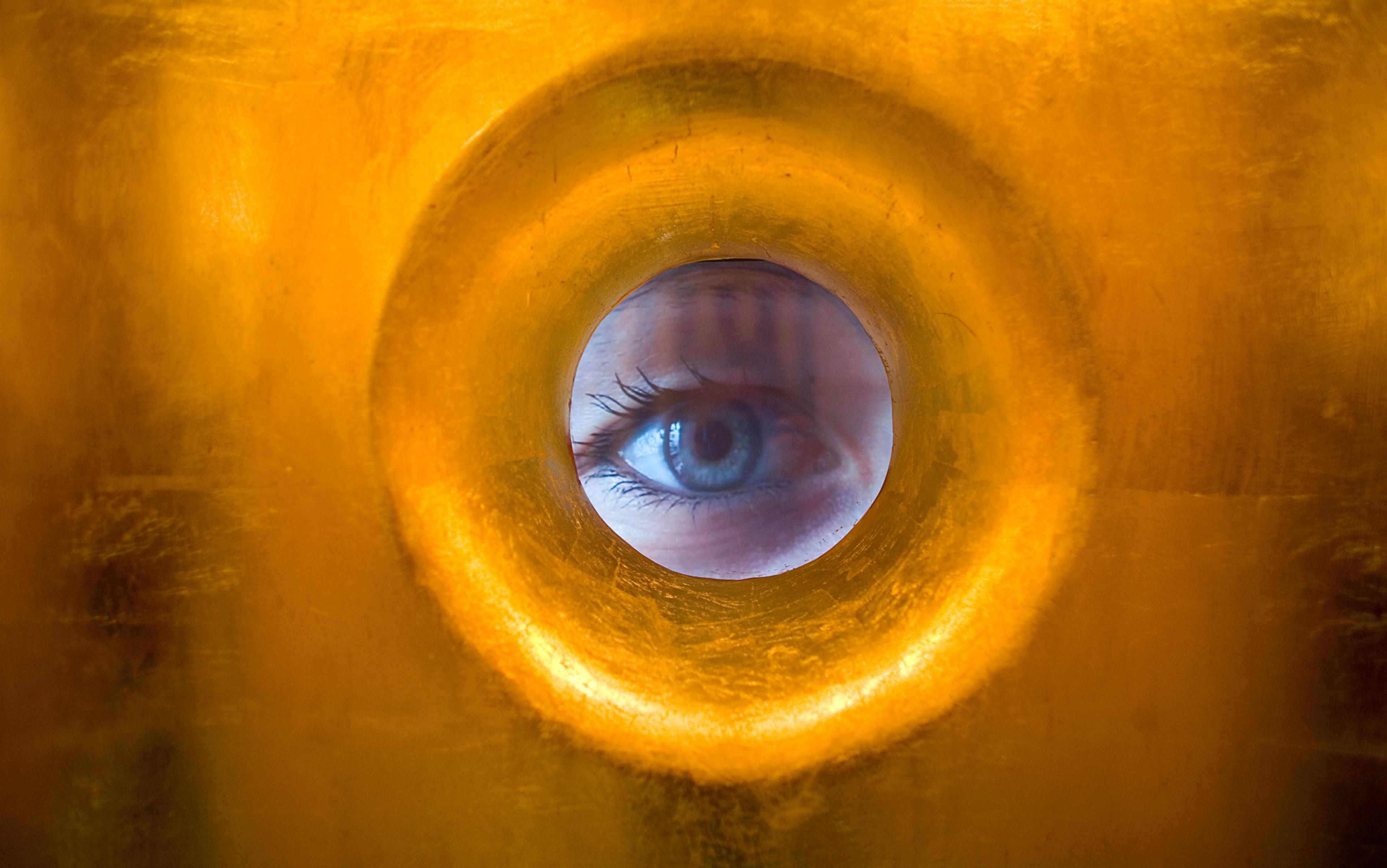Do you believe in miracles? You shouldn’t – not in the strict sense of ‘miracles’, anyway. If you’re just using the word as a kind of hyperbole, that’s fine: believe away. People sometimes refer to the ‘miracle of birth’, but they don’t mean that a supernatural agent was involved. They just mean that birth is wonderful and momentous. In other contexts, calling an event a miracle draws attention to its unlikely good fortune. In 1980, the United States Olympic hockey team defeated the Soviet team in a medal round. The USSR had won the gold medal in this sport at every Olympic Games bar one since 1956, so no one expected the US to prevail. Americans now refer to this game as the ‘Miracle on Ice’, and some of them might well believe that God assisted their players. Nevertheless, most who describe that victory at Lake Placid, New York as a miracle mean simply that it came as a huge, and very nice, surprise. I doubt many in the USSR referred to their loss as a miracle, though they will have been just as surprised as viewers in the US.
This is not the kind of miracle that interests me. My sights are set on those alleged occurrences that depend on the activities of supernatural forces. When Moses parted the Red Sea, or Jesus raised Lazarus from the dead, or Aaron turned his staff into a serpent, one might be inclined to think that something outside of nature was at work. Each of these events appears inconsistent with how we know nature to operate. Had it run its normal course, the Red Sea would never have parted, Lazarus would have remained dead, and Aaron’s staff would never have eaten the Pharaoh’s serpents.
Miracles, as I think of them, will tend to be improbable. This is not to say that they must be improbable ‘by definition’, just as bachelors, ‘by definition’, must be unmarried. On the contrary, the improbability of miracles functions only as evidence for their supernatural origin. If you look up and see unrelenting grey skies, this might persuade you that you’re in London. Similarly, if you see something unlike anything you’ve ever seen before, this might suggest that the natural order has broken down: that a supernatural presence has intervened, disrupting the normal course of things.
What is the natural order? Think about how we develop our ideas for how nature is ‘supposed’ to work. We observe, for example, that metal expands when heated. The more observations we make, the better confirmed this generalisation appears to be. The better confirmed the generalisation, the stronger our conviction that we have hit upon a deep and broad fact about nature: that all metals (and not just the ones we have observed) expand when heated. Similarly, our belief in the finality of death rests upon countless observations of living organisms (including human beings) dying and staying dead. The best evidence for the generalisations by which our sciences describe nature is frequency. The more one observes a pattern recurring again and again, the more reason one has to believe that the pattern is natural – that it is, in fact, how the world works.
The flip side to this is that when a well-confirmed generalisation fails – when that piece of metal refuses to expand, or when that dead body leaps from the grave and dances a jig – we must give up the idea that nature operates as we thought. Alternatively, when our generalisation has been confirmed as thoroughly as the notion that dead organisms remain dead, we might choose to regard the apparent violation of the natural order as the consequence of something outside nature. A non-natural force has acted to suspend the natural way of things, seeing to it that a dead organism gets a second chance at life.
Does rarity really indicate miraculousness? Suppose for a moment that Moses parting the Red Sea was not such an uncommon event. Perhaps he parted the Red Sea every day and twice on Sundays. Maybe not just Moses, but his friends Shlomo, Herb, and Esther also took turns parting the Red Sea. I think if people were parting the Red Sea frequently, we would begin to suspect that nothing unnatural was going on. We might suppose that the Red Sea has unusual tides and that Moses and his friends just figured out the schedule. On the other hand, we might come to think that Moses & Co had secretly installed a drain at the bottom of the sea. The more frequent the partings, the more inclined we’d be to regard them as a feature of nature, or a trick with a perfectly natural explanation. It’s because, to our knowledge, the sea never parts on command that we find a supernatural explanation tempting when it does.
Finally, my thesis: no one has ever been justified in believing in miracles in the strict sense.
Before we get into the defence, let me make a clarification. On the several occasions when I have presented my thesis to various groups, the first response I typically receive is this: ‘So you don’t think there have been any miracles?’ This is the wrong response: my thesis takes no stand on whether there have been miracles. My concern is only with the question of justification. We are not presently, nor has anyone ever been, justified in believing in miracles.
To grasp the distinction I’m drawing, consider the question of whether life exists on Mars. Many people believe that it might, most probably in microbial form. Certainly, we can all agree that life either exists on Mars or it does not (there can be no middle ground). However, we currently lack sufficient evidence to justify a belief in life on Mars. Some day we might acquire such evidence. Perhaps methane will be discovered on the planet’s surface, raising the probability that microbes exist. Perhaps other bits of evidence will emerge as well. At some point, the accumulating data might grow so compelling that we would be justified in believing that life does indeed exist on Mars. Likewise, we can all agree that miracles such as Jesus rising from the dead either did, or did not, occur. My claim is that, to date, evidence for such an event – and any other event that is regarded as a miracle – is too weak to justify anyone’s belief in it as fact.
I claim no great originality for my argument. I’m borrowing from the great Scottish philosopher David Hume, particularly Section 10 of his magnificent Enquiry Concerning Human Understanding (1748). If there is any novelty in my presentation, it owes to the marriage of Hume’s ideas with a famous theorem in probability theory proposed by the Reverend Thomas Bayes in ‘An Essay towards solving a Problem in the Doctrine of Chances’ (1763). The technical details, fortunately, can be put to the side for our purposes.
The argument begins with an assumption that is very favourable to those who believe in miracles. Let’s say that the witnesses of miracles are very reliable – far more reliable than ordinary witnesses. This is not to say that miracle witnesses are infallible. If they were, then of course we could trust their reports and there would be nothing more to discuss. But witnesses, we know, are never perfect. Things aren’t always as they seem, our eyes on occasion mislead us, and sometimes we see what we want to see. When a courtroom drama hinges on a witness who turns out to have identified the wrong person, no one doubts that such misidentifications are possible.
Even so, for the sake of argument, let’s suppose that witnesses to miracles almost never err. Of all the reports they make in the course of their lifetime – hundreds, thousands, even 100,000 – they make only one mistake. Should we believe someone who claims to have witnessed a miracle if his or her testimony has a chance of only one in 100,000 of being wrong?
If Jesus did rise from the dead, he’s in a very select group
Now I want to consider a slightly different question, albeit one that will have lessons for how we should answer the question above. Suppose you visit your doctor for a routine check-up. After testing a sample of blood, the doctor grimaces. ‘I have bad news for you,’ he says. Bad indeed. You’ve tested positive for a very lethal form of cancer. Your chance of surviving the next three years is practically zero. A treatment exists, but it carries significant costs (blindness, incontinence, all your hair falling out). Furthermore, your doctor says, the test is very good. In every 1,000 tests, it gives only one false positive – that is, a diagnosis of cancer to someone who doesn’t have the disease. Also, 0.1 per cent of the time it goes wrong the other way, giving a negative result to someone who really does have the disease. Do you opt for the treatment?
The correct answer is this: before deciding, you need a piece of information that the doctor did not provide. Without information about the base rate of the disease – its frequency in the population at large – any facts about the reliability of test are completely useless.
To demonstrate this, let’s first suppose that the cancer is not terribly uncommon. Perhaps it affects 0.1 per cent of the population. This means that, for every 1,000 people in the population, one person will have the disease. We also know that the test goes wrong 0.1 per cent of the time. That is, it errs one time in 1,000, and it errs in two ways. If we select 1,000 people at random from a larger population, one person in this group who is actually healthy is likely to test positive for cancer. However, the chances are that this group also contains one sick person, because the base rate of the disease, as we’ve said, is one in 1,000. Yet, because the test fails to detect cancer only one time in 1,000, chances are very good (999/1,000) that the test will correctly identify the sick person in the group. This means that, having tested 1,000 people, our test ends up ‘diagnosing’ two of them with cancer, when in fact only one of them has it. Given the base rate of the disease and the sensitivity of the test, if you’ve tested positive, the chance that you are actually sick is only 50 per cent.
An obvious but interesting conclusion follows. If we hold the accuracy of the test constant but decrease the base rate of the disease, the trustworthiness of the test result diminishes accordingly. For instance, let’s now suppose that the base rate of the disease is one in 10,000. That extra zero means that, having tested positive, the odds of genuine sickness slip down to 10 to one. With its one-in-1,000 error rate, the test will identify 10 people as having the disease when they do not, and one as having the disease when he or she does. Making the disease rarer still, so that it affects only one in, say, 1 million people, puts the chances of illness at a vanishing 1,000 to one. So, this test of ours turns out to be no good at all when the disease for which it tests is rare.
The practical lesson is this: knowledge of the rate at which a test errs tells you nothing by itself about whether the test results should be trusted. You need also to consider whether the thing for which you are being tested occurs frequently or seldom. If the disease is rare and you test positive, you should look for another explanation for your result than actual illness. Given a test that errs one time in a 1,000 and a disease that is present in only one person in a million, there is a better explanation. Evidently, the test is sensitive to factors other than disease. Something in your blood, perhaps, triggered the positive outcome. This possibility is far more likely than that the disease was responsible for the positive result. Indeed, it’s 1,000 times more likely.
Still another point concerns the issue of justification that I raised earlier. Because a positive test result in the conditions I have described is far more likely to be wrong than right, the result fails to justify the belief that you have the disease. Even if you do have the disease, and even if the test correctly diagnoses you as having the disease, you should not believe this on the basis of the test alone. Forget about the test result. It’s as good as worthless as far as justification goes.
Let’s see how these ruminations about tests and base rates and justification bear on the issue of miracles. Many people believe that Jesus rose from the dead (indeed, there are about two billion Christians on Earth, and if only half believe that Jesus rose from the dead, that’s still an awfully big number). If such a resurrection really took place, we can grant that this would have been an extraordinarily rare kind of event. Of course, other stories of the dead returning to life appear in mythology and fairy tales, but these stories are presumably not based on fact. This means that, if Jesus did rise from the dead, he’s in a very select group (he allegedly raised several people himself). If we were to conceive of rising from the dead as a kind of disease, we’d say that the ‘base rate’ for rising from the dead appears to be small indeed: one in several billion, at best, I should think.
Now we must ask about the reliability of the test that tells us that Jesus rose from the dead. On what basis do we form a judgment that Jesus was resurrected? Although the gospel accounts of the resurrection are surprisingly inconsistent given the magnitude of what they describe, we might grant that one or two witnesses to the resurrection were present. These witnesses are, in effect, our ‘test’ for the resurrection of Jesus. Just as we can ask about the probability of a disease given a positive test result, we can ask about the probability of Jesus’s resurrection given that a person claims to have witnessed it. I’ve already allowed that witnesses to miracles are super-reliable. This, of course, is very generous on my part. There’s really no reason to think that miracle-observers should be any more reliable than normal human beings.
I don’t deny that miracles have occurred, just that the available evidence fails to justify a belief that they have occurred
Be that as it may, if Jesus’s resurrection is the ‘disease’ and the witness report is the ‘test’, we can now do the algebra to decide whether to believe in the resurrection. The base rate for the resurrection is (let’s say) one in 1 billion. The witnesses go wrong only one time in 100,000. One billion divided by 100,000 is 10,000. So, even granting the existence of extraordinary witnesses, the chance that they were right about the resurrection is only one in 10,000; hardly the basis for a justified belief.
As with the diagnostic test, the question to ask is whether there is a better explanation for the existence of these witness statements than the actual resurrection, which, as we’ve already said, is vastly improbable. What might account for such reports? Who knows, but I imagine any of the following is more likely than the supposition that Jesus actually rose from the dead: perhaps no witnesses were present and the story of the resurrection simply grew, as fantastic stories often do, from embellished retellings of Jesus’s life; or the witnesses reported a hallucination of Jesus that others then took to be a true report of Jesus in corporeal form; or maybe the witnesses were mendacious and eager to start a cult that might challenge Roman authority. How likely are any of these alternative accounts of why the witnesses, if present at all, said what they did? No idea, to be honest, but I’m quite sure that any of them are more probable than a dead person returning to life.
No one is justified in believing in Jesus’s resurrection. The numbers simply don’t justify the conclusion. But the resurrection is just one miracle. If we suppose that all miracles are similarly rare, then, by parity of reasoning, belief in any one of them is similarly unjustified. As noted earlier, my conclusion doesn’t deny that miracles have occurred or might occur, just that the available evidence fails to justify a belief that they have occurred. So, if you wish to continue to believe in miracles, you must do so knowing that the evidence is not on your side.






